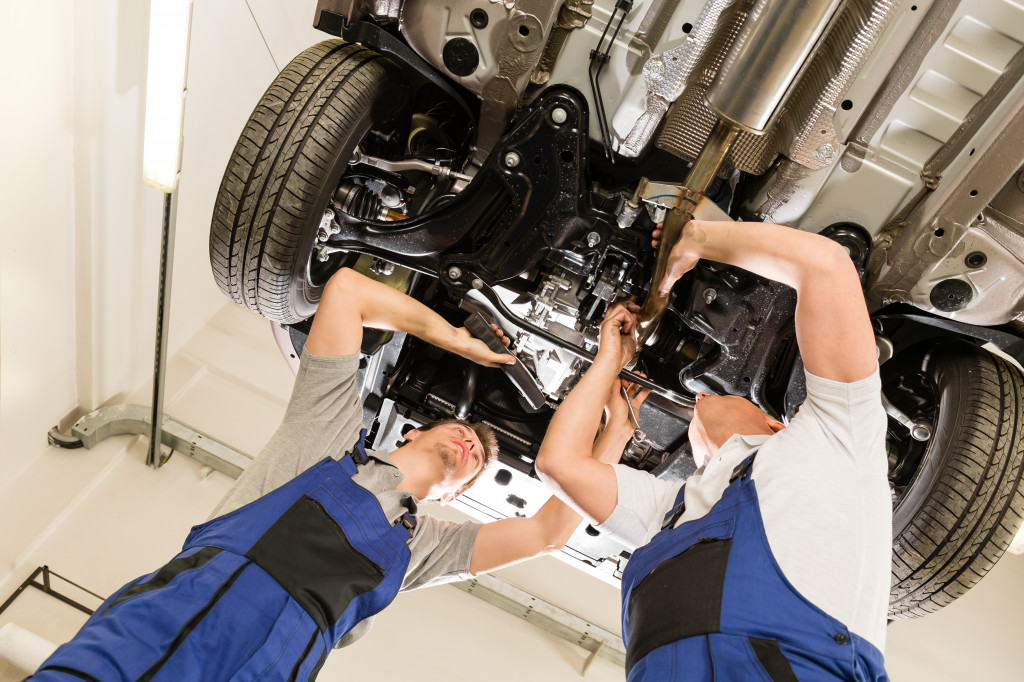As of August this year, many key markets in the global automotive industry have seen signs of improvement in auto sales. But it remains challenging to determine the actual market situation because the repressed demand may be concealing a lower inherent market demand. There’s also the possibility of a second wave of COVID-19. So analysts from Counterpoint maintain their forecast of a 20% decline in auto sales this year.
However, considering the easing of the lockdowns in Europe, many dealers have reopened their showrooms, and manufacturing plants resumed operations. As of May 2020, preliminary auto sales in the continent have shown a modest bounce back from the repressed demand, confirming that the crisis surpasses restrictions imposed by the lockdowns.
The decline in auto sales stemmed from the reduced consumer confidence in all European markets. Many people who intended to buy a vehicle pre-COVID-19 have postponed their plan and are now undecided on pushing through. Meanwhile, car-owning households wouldn’t be replacing their autos as often as usual, as traveling is still discouraged.
Considering these unfavorable market performances, will it be the right decision to open an auto repair shop in Europe? If people don’t use their vehicles as much, will there be a reason to visit a mechanic?
The Silver Lining
The lifting of the lockdowns coupled with stimulus packages all over Europe appears to be benefiting the automotive industry, according to Counterpoint analysts. Despite the 16% decline in sales last August, it was still considered a good performance. Sales in August last year were just as high (1.2 million) when automakers rushed to push their automobiles before the deadline for the Worldwide Harmonized Light Vehicles Test Procedure (WLTP) testing.
Furthermore, people relocating may make up for the decreased sales. If the work-from-home setup continues after COVID-19, the demand for housing in metropolitan areas will drop. That may encourage people to consider moving into rural areas, where homes are cheaper.
With lower mortgage payments, the relocating urbanites are more likely to buy a car. Also, the high risks of viral transmissions in public transportation are discouraging people from commuting, another reason buying a car would be more appealing for them.
Electric Cars Are Booming

Electric and hybrid cars surged in popularity in Europe in April. 17% of auto sales across all European markets were accounted for by battery electric vehicles, plug-in hybrids, and other hybrids. It was over double the 7% market share reached in April of last year.
Sales data suggest that automakers are progressing towards meeting emissions reductions targets. According to Felipe Munoz, an analyst at Jato, governments have acted quickly to protect their people and environment this year, pushing for the risen popularity of electric vehicles (EV) due to incentives.
The variety of EV models has increased, too. Each new model is getting aligned with the typical family’s driving needs. It’s also possible that the wealthy, who tend to be EV’s buyer segment, are less affected by the financial crisis caused by the pandemic. That was backed up by the lower decline of luxury vehicle sales in Germany.
And of course, the pandemic has raised people’s concerns for the environment further. The more people become aware of their environment, the more they’ll reflect it on their behaviors. Their increased environmental awareness may be exhibited when choosing a car, pushing them to lean more towards EVs.
There is also anecdotal evidence that the pandemic has changed people’s outlook on their environment. Some commentators noted a heightened appreciation for nature, thanks to the home quarantines.
The public’s avoidance of public transportation plays a role in EV’s gain in market share. Politicians and environmental campaigners are pushing for the prioritization of electric car models since consumers are urged to take care of their health more.
Lastly, it’s also possible that the pandemic has taught people about their connection to society. Communities are working together to stop more viral infections, setting an example through wearing masks and practicing physical distancing. These seemingly small acts cause a wave of change, which we’re now seeing in the growing preference for EVs, among others.
Therefore, if your business idea of an auto repair shop is itching to be breathed life into, consider catering to EV owners, as well as to people residing in rural areas. Invest in top-notch equipment, which includes durable two-post car lifts; study the new market behavior.
With that, you can set up a shop that will be prepared to handle if the market for autos develops again. You can also cater to customers that need repairs for cars that haven’t been used for a long while. You’ll find yourself among those who thrived in new business during the pandemic.



